The global economy runs on commodities. Whether it’s the oil that fuels our cars or the precious metals that go into our gadgets, raw materials are always in demand. But for many investors, the world of commodities can seem complex and intimidating.
If you’re interested in commodity trading and investing, the good news is that it’s never been easier to get started. But before you do, it’s essential that you have a solid understanding of the fundamentals.
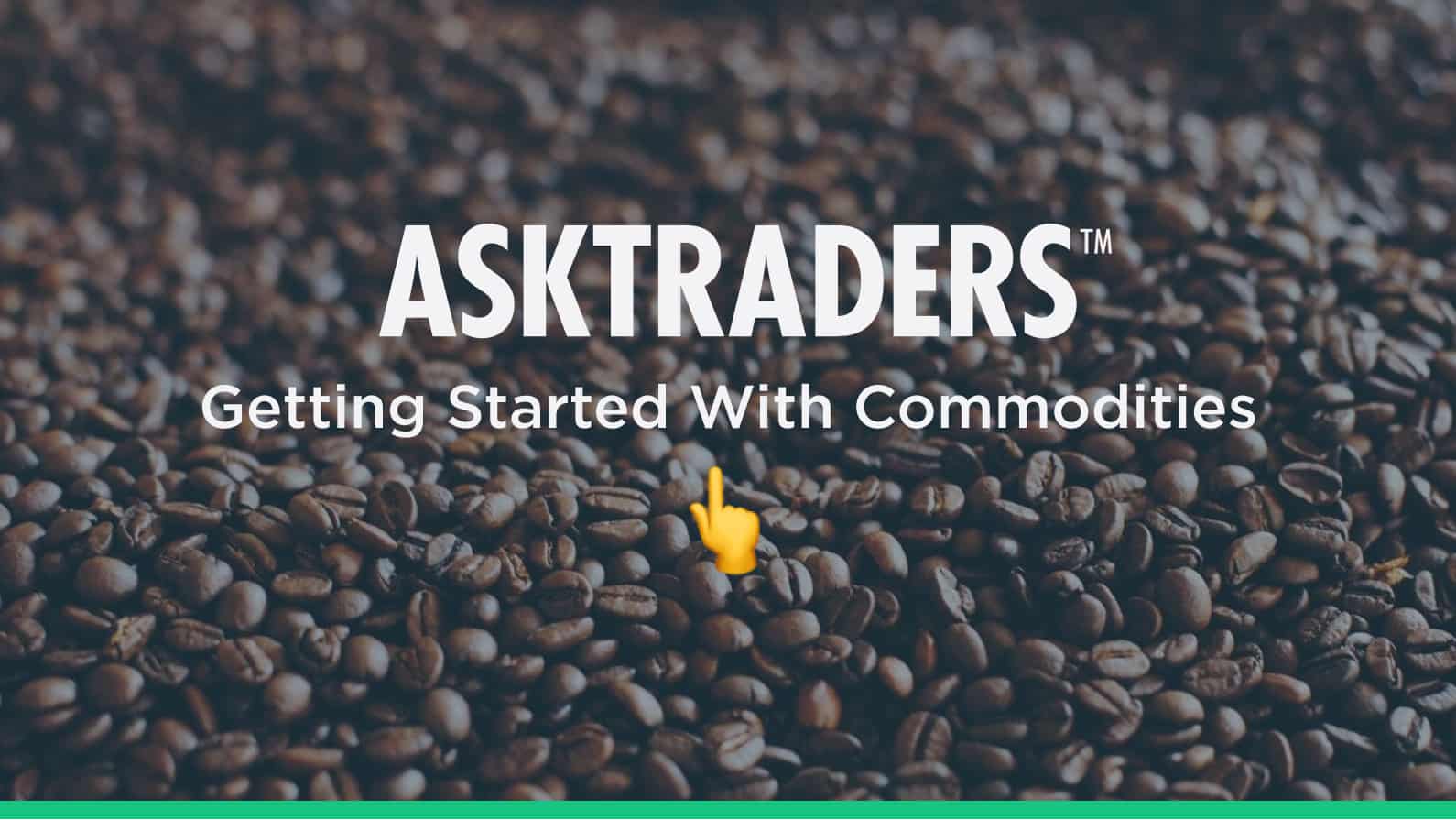
YOUR CAPITAL IS AT RISK
What Is a Commodity?
A commodity is a raw material that can be grown, extracted or mined for use in the production process to manufacture finished goods. We impact the commodities market with our actions every single day. From the moment we sip a cup of coffee in the morning to the clothes we choose to wear, the car we drive and the groceries we buy.
Commodities are the building blocks of nearly everything we use in life, whether they are mined from beneath the earth’s surface or grown on the topsoil of the planet. Commodity trading has evolved over time to smooth out the financial bumps in the road from the producer/miner to the user/manufacturer, both of whom must make substantial capital commitments before fixing market prices.
Where Are Commodities Traded?
Commodities are traded on an exchange through futures contracts, stocks, and ETFs, while they can also be bought and sold in their physical states.
A commodity exchange is an exchange, or market, where various commodities are traded. Trading on an exchange includes various types of derivatives and contracts based on these commodities, such as forwards, futures and options, as well as spot trades. Access to these exchanges can be direct or through brokers – the obvious path for individual traders.
The largest commodity exchanges in the world are:
- CME Group
- Tokyo Commodity Exchange
- Euronext
- Dalian Commodity Exchange China
- Multi Commodity Exchange
- Intercontinental Exchange
- Africa Mercantile Exchange
- Uzbek Commodity Exchange
Some exchanges specialize in a particular group of commodities, including:
- Chicago Mercantile Exchange (energy and metals)
- ICE Futures US (agricultural products)
- Chicago Board of Trade (agricultural products)
- LIFFE (agricultural products)
- London Metal Exchange (non-precious metals)
- ICE Futures Exchange (energy)
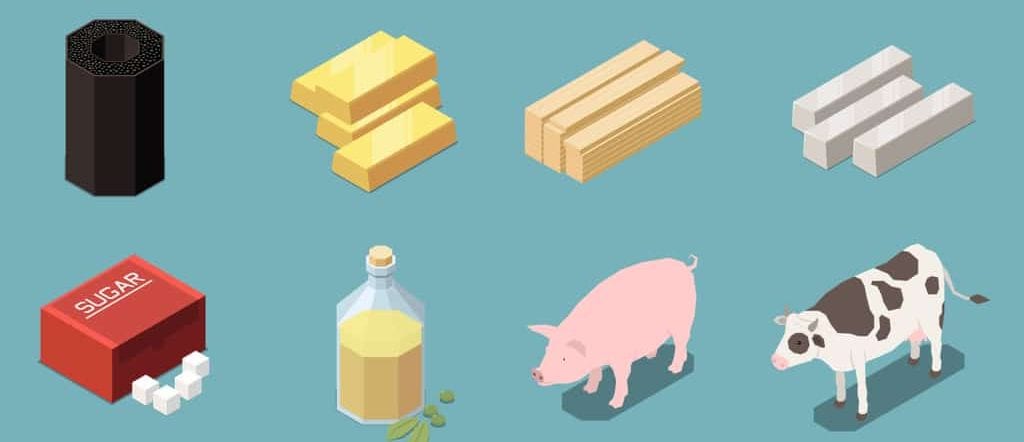
Are Commodities Regulated?
Yes, they are. Each commodity market has a primary regulator, much the same way as with regulatory oversight of stocks. In the United States, the primary regulatory body is the Commodity Futures Trading Commission (CFTC), while the Financial Conduct Authority (FCA) performs the same function in the UK. Other well-known regulatory bodies from around the world include ASIC (Australia), BaFIN (Germany), FMA (New Zealand), FINMA (Switzerland) and FSA (Japan).
Types of Commodities
There are no hard and fast rules for categorizing commodities. The classifications are general, each comprising a multitude of items. An EFT may include a group classification, but a trade in the futures market could be for a specific commodity or index, i.e., for a specific commodity or basket of commodities.
Tradable commodities fall into a number of categories, including grains, softs, livestock, energy, metals, and ‘other.’
- Softs (cocoa, coffee, cotton, orange juice, sugar)
- Livestock (feeder cattle, live cattle, lean hogs, pork bellies)
- Energy (brent crude oil, WTI crude oil, gasoline, heating oil, natural gas)
- Metals (steel, copper, iron, gold, nickel, palladium, platinum, silver, aluminum)
- Other (lumber, rubber, wool)
Traders often encounter the use of ‘hard’ and ‘soft’ when describing commodity types.
- A hard commodity is any commodity that must be mined (gold, silver) or extracted (rubber, oil).
- A soft commodity describes anything of an agricultural nature (corn, soybeans, wheat, rice).
To confuse matters even further, the word “raw” is often used, as well, more as a broad definition of any raw material used in the production of something else.
Oil is the most valuable traded commodity. Energy is known as the ‘Mother of All Markets’ and constitutes in excess of $1.3 trillion – roughly 3.6% – of global GDP. Oil tops the list of products, which can be further broken down into various crude oil qualities, heating oil, and its cousin, natural gas.
Commodity Risks
Everything from the weather to competition and to inventories on hand can unduly cause extreme market fluctuations in price. Here are some of the macro risks to watch out for:
Volatility: Commodity trading is known to have a high-risk profile, which means that there is a high potential for reward but also a high potential for loss as well.
Geopolitical Events: Geopolitical risks can significantly impact the price of commodities. For example, the recent tensions in the Middle East resulted in an initial surge in the price of gold.
Macroeconomic Conditions: The global economy can also impact commodity prices. For example, if an economy goes through a downturn and demand for certain products declines, the commodity or commodities used in those products may also come under pressure.
Weather: Some commodity prices may be impacted by weather events. For example, extreme heat waves and droughts have the potential to impact the global food supply and send wheat prices soaring.
Inventories: Elevated inventory levels indicate an oversupply and can lead to downward pressure on the price of a commodity. ON the other hand, low inventory levels suggest potential scarcity, pushing prices higher.
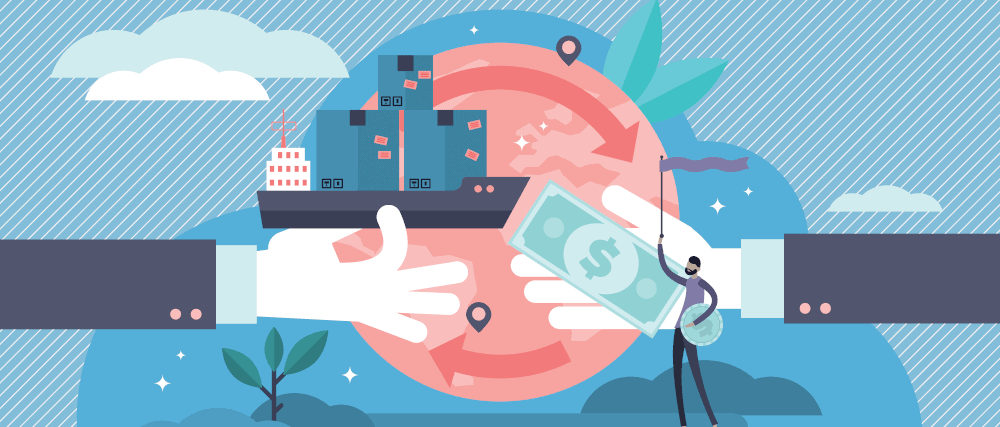
Trading Commodities Online
You now have a basic understanding of the global commodities market, the types of commodities that are traded, and the exchanges that are at the core of the commodity market.
To begin trading commodities, you will need a brokerage account that allows you to buy and sell commodities on their platform (some may only offer stocks or forex etc).
Searching for the right broker can be tough. However, we have done the legwork for you. Below is a list of the top brokerage accounts that allow you to trade commodities:
What Is the Best Way to Trade Commodities?
The best way to trade commodities is to match your trading personality and tolerance for risk with a method that does not cause you to lose sleep at night.
Depending upon your tolerance for risk and favored commodity, there are six ways you can trade commodities:
- Traditional stock ownership of a commodity producer
- Exchange-traded funds (ETFs)
- Mutual, managed, or index funds
- Contracts for Difference (CFDs)
- Options on Futures
- Futures Contracts
1. Direct Ownership
Direct ownership in a commodity or stock of a producer is the simplest method but is by no means risk-free. To invest in oil, you might choose ExxonMobil or, if gold is your passion, Barrick Gold Corporation may work for you.
You may also prefer to buy a commodity directly through a market dealer. For example, you may purchase Gold coins or bars to own directly or have an agent secure your bullion in a privately managed vault. Commissions add another form of price risk, so be wary.
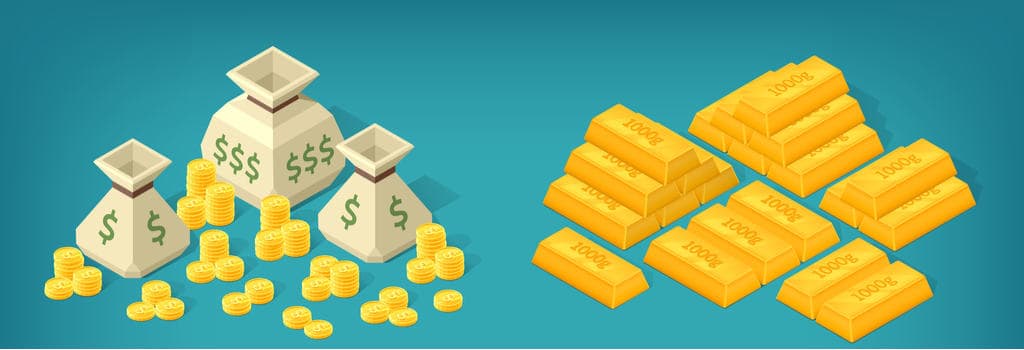
2. Exchange-Traded Funds (ETFs)
These funds do the buying and selling in the futures market for you while you can purchase shares the same way as you would with stocks. Commodity ETFs are plentiful and cover a broad spectrum from corn to gold to you name it.
Indexes and commodity baskets are also popular, but convenience and simplicity are the main draws. Active trading periods are within traditional stock exchange timeframes.
3. Mutual, Managed, and Index Funds
These funds may focus on a single commodity or a basket of items. Insurance companies or private fund managers may offer these commingled funds, which presents another area of risk to assess.
Be sure to carefully review the applicable commission and/or manager bonus structures. Index funds tend to have lower fee components and less risk, depending upon the manager involved.
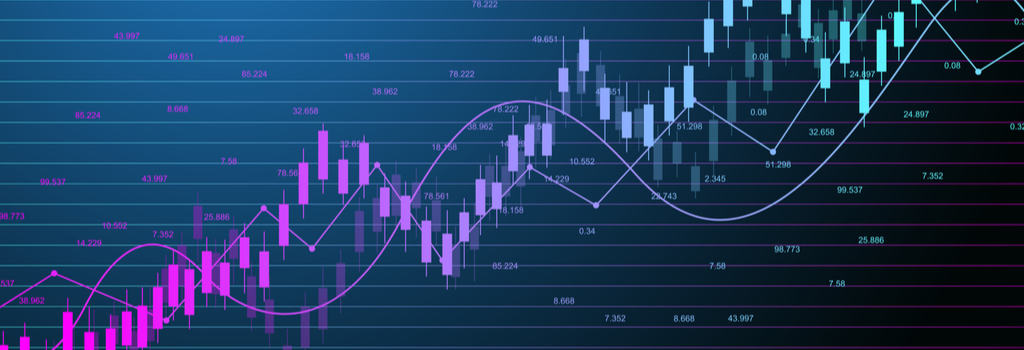
4. Contracts for Difference (CFDs)
A CFD is a derivative instrument and contract between you and your brokerage firm. You participate in the commodities market, but you do not have to buy shares, stocks, futures, or options.
Profits arise based on picking the correct direction that a commodity price takes over the short-term. Your broker will define how prices are fixed at the end of a contract. The SEC in the United States does not permit trading in CFDs.
5. Options on Futures
Once again, you can invest with an option in commodity futures without having to buy the actual futures contract. These derivatives involve “Puts” and “Calls” for going short or long, along with a strike price and expiration date.
Each Put or Call has a premium – or cost – which must be recovered before your profits begin to accrue. Your downside risk is limited to this premium, as long as you allow the option to expire.
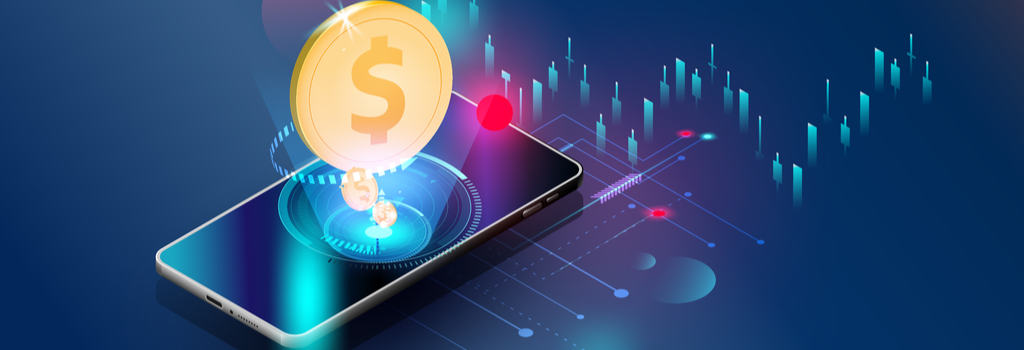
6. Futures
With a futures contract, you actually buy a contract for delivery in the future at a strike price. By using leverage, you can limit your upfront capital exposure.
Brokers for the average trader will ensure that delivery is never an issue. With direct ownership not an issue, you are actually speculating on the direction that prices will take over time for your selected commodity. Your appetite for volatility risk will determine how you approach this method.










